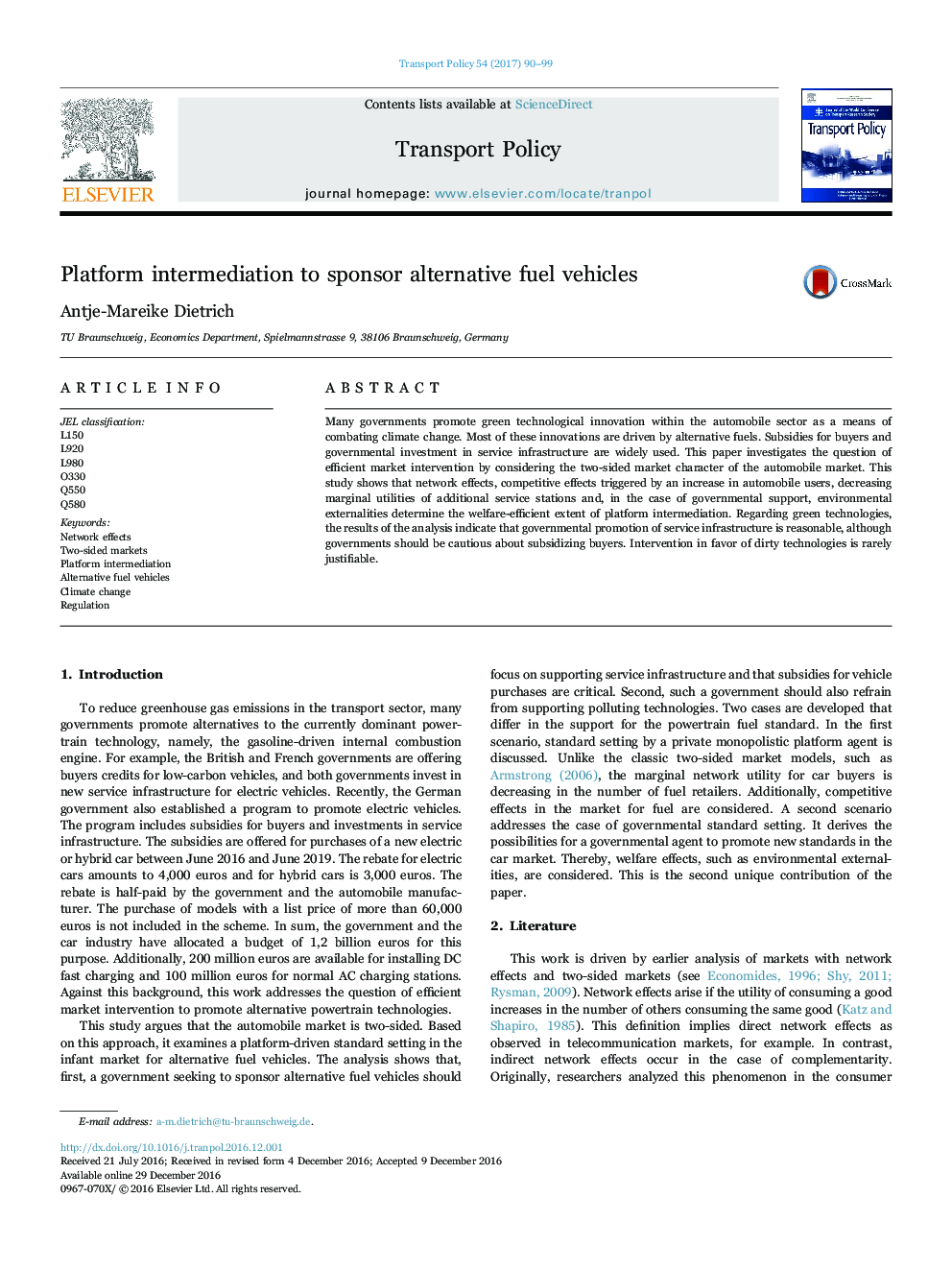| Article ID | Journal | Published Year | Pages | File Type |
|---|---|---|---|---|
| 5119106 | Transport Policy | 2017 | 10 Pages |
â¢The market for alternative fuel vehicles is a two-sided market.â¢Sponsors of infant powertrain fuel standards act as platform intermediary.â¢Network and competitive effects, inter alia, determine social efficient sponsoring.â¢Public investment in service infrastructure is reasonable.â¢But governments should be cautious about subsidizing buyers.
Many governments promote green technological innovation within the automobile sector as a means of combating climate change. Most of these innovations are driven by alternative fuels. Subsidies for buyers and governmental investment in service infrastructure are widely used. This paper investigates the question of efficient market intervention by considering the two-sided market character of the automobile market. This study shows that network effects, competitive effects triggered by an increase in automobile users, decreasing marginal utilities of additional service stations and, in the case of governmental support, environmental externalities determine the welfare-efficient extent of platform intermediation. Regarding green technologies, the results of the analysis indicate that governmental promotion of service infrastructure is reasonable, although governments should be cautious about subsidizing buyers. Intervention in favor of dirty technologies is rarely justifiable.
